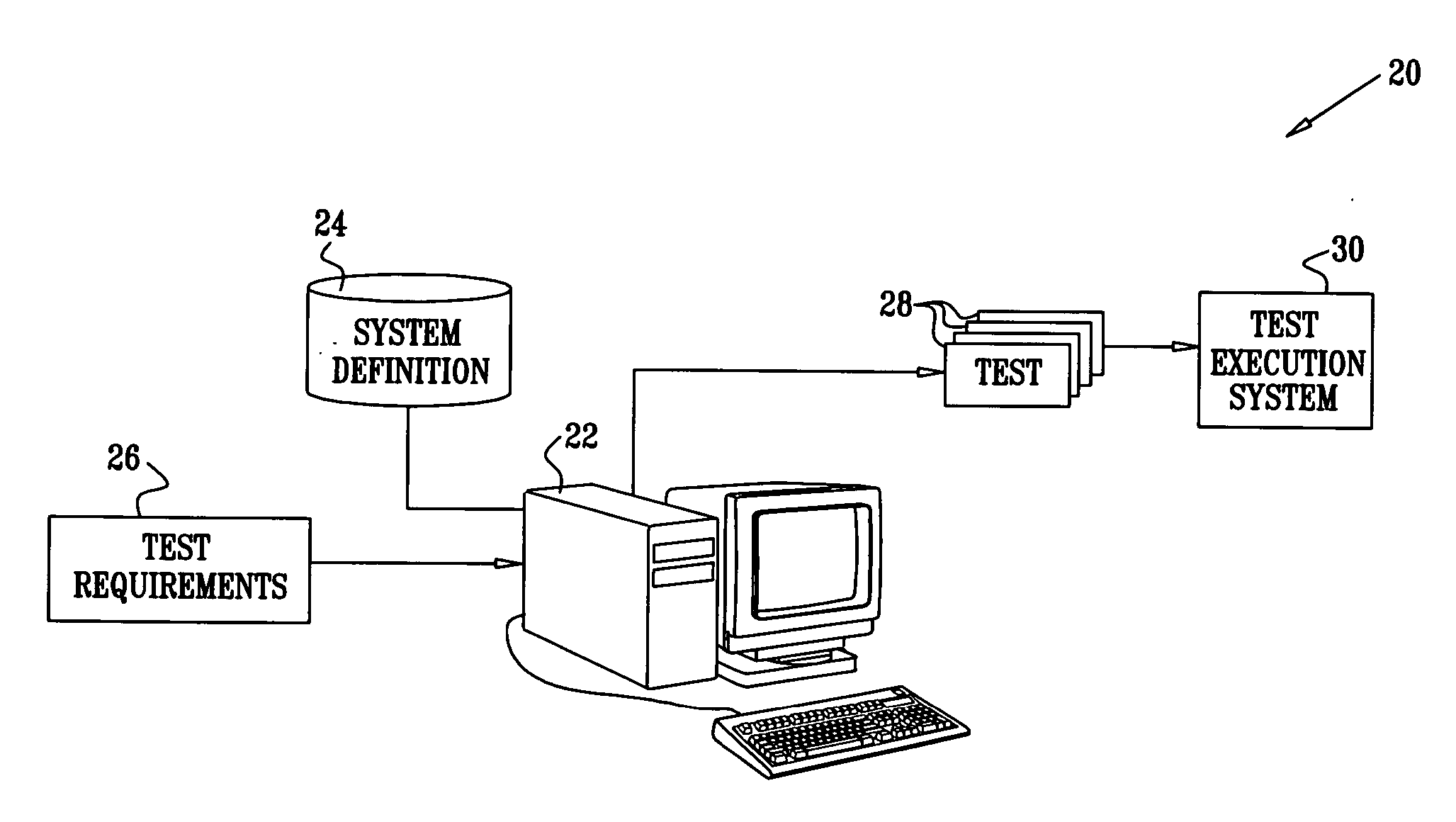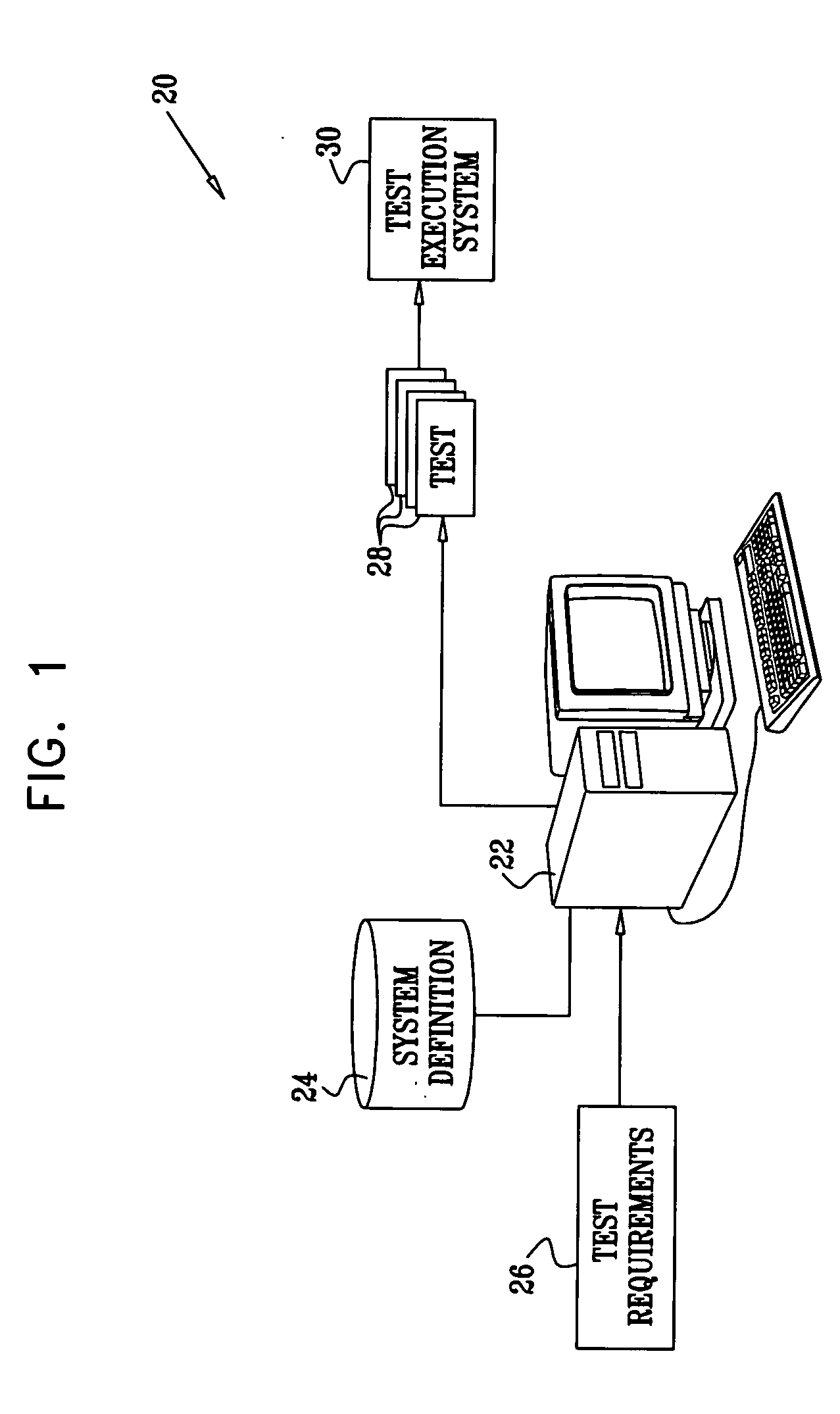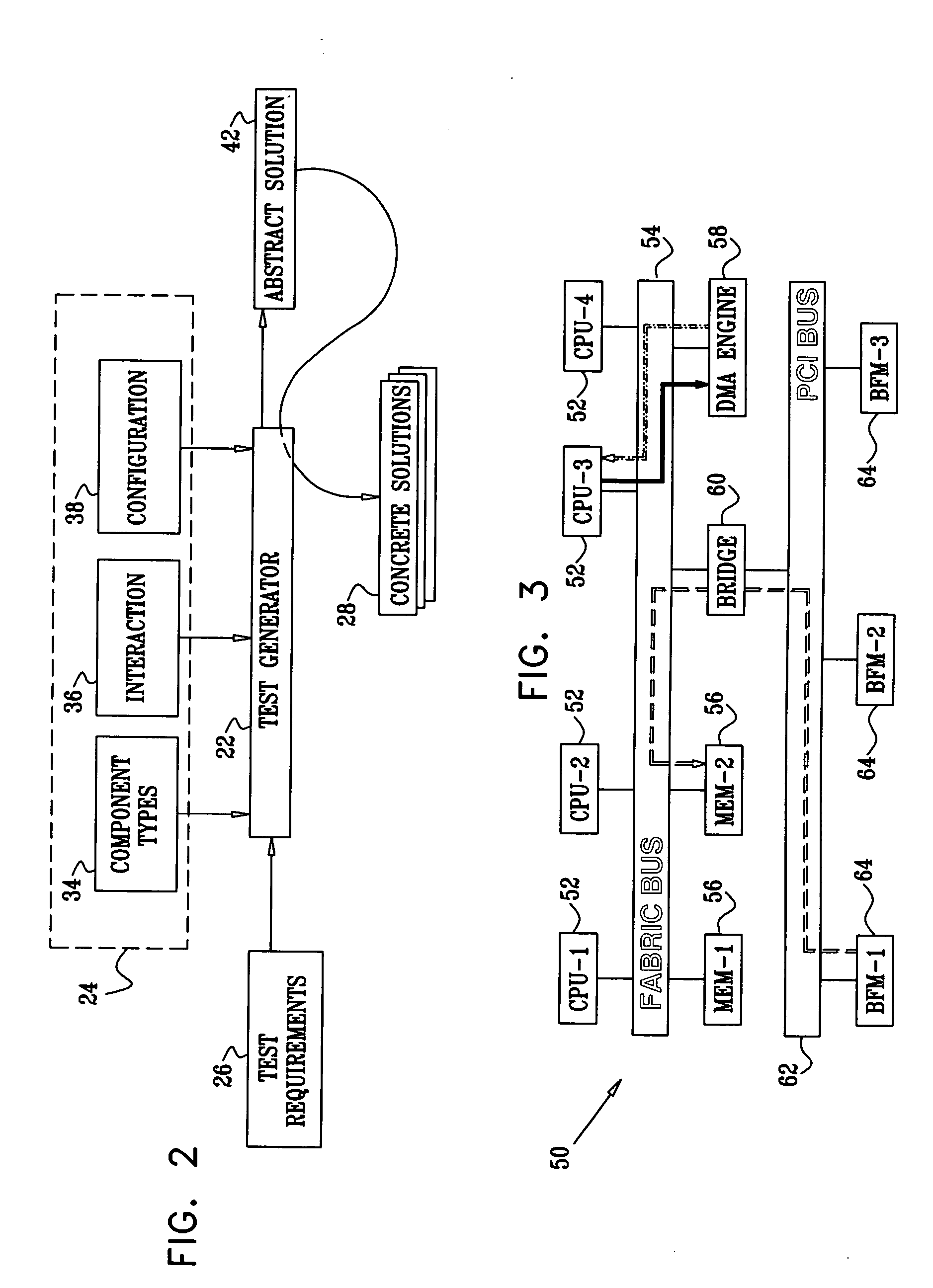Accelerated solution of constraint satisfaction problems by partitioning of the variable space
a technology of variable space and constraint satisfaction, applied in the field of methods, can solve problems such as worst-case exponential time performance of general solution methods, and achieve the effect of large impa
- Summary
- Abstract
- Description
- Claims
- Application Information
AI Technical Summary
Benefits of technology
Problems solved by technology
Method used
Image
Examples
Embodiment Construction
[0028] The present invention provide improved methods and systems for solving constraint satisfaction problems, CSPs. These methods are based on partitioning the variables in the CSP into at least two-sets. Typically, for efficient solution, variables that have a large impact on the structure of the CSP are assembled in the first set, also referred to hereinbelow as the set of “abstract” variables. For example, when the CSP is used to model a target system such as an electronic circuit under design or test, the first set of variables may define the components in the circuit and their configuration. A second set of variables, also referred to as “concrete” variables, may then define the addresses and data values on which the components are expected to operate. In cases such as this, the constraints on the variables in the first set are more or less fixed by the definition of the target system. The input domains and other constraints on the variables in the second set may be varied in...
PUM
 Login to View More
Login to View More Abstract
Description
Claims
Application Information
 Login to View More
Login to View More - R&D
- Intellectual Property
- Life Sciences
- Materials
- Tech Scout
- Unparalleled Data Quality
- Higher Quality Content
- 60% Fewer Hallucinations
Browse by: Latest US Patents, China's latest patents, Technical Efficacy Thesaurus, Application Domain, Technology Topic, Popular Technical Reports.
© 2025 PatSnap. All rights reserved.Legal|Privacy policy|Modern Slavery Act Transparency Statement|Sitemap|About US| Contact US: help@patsnap.com



